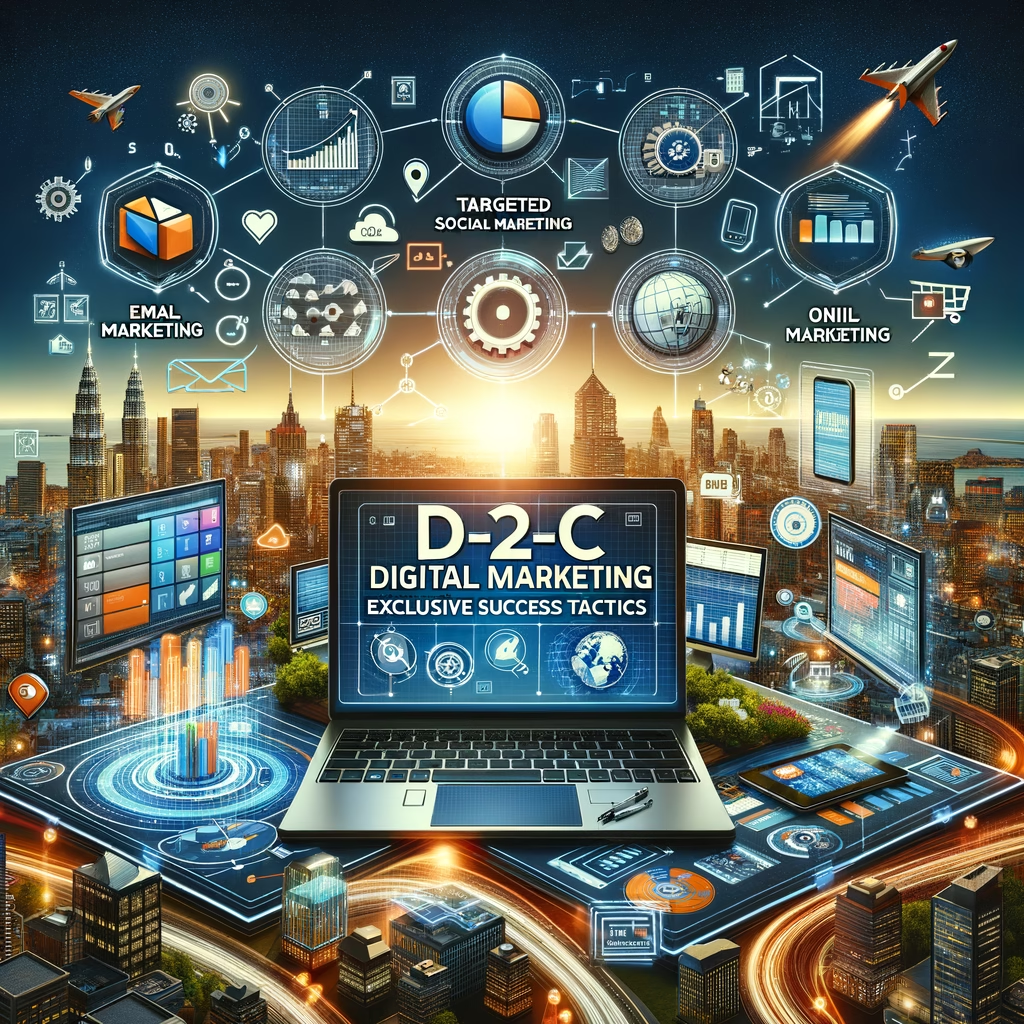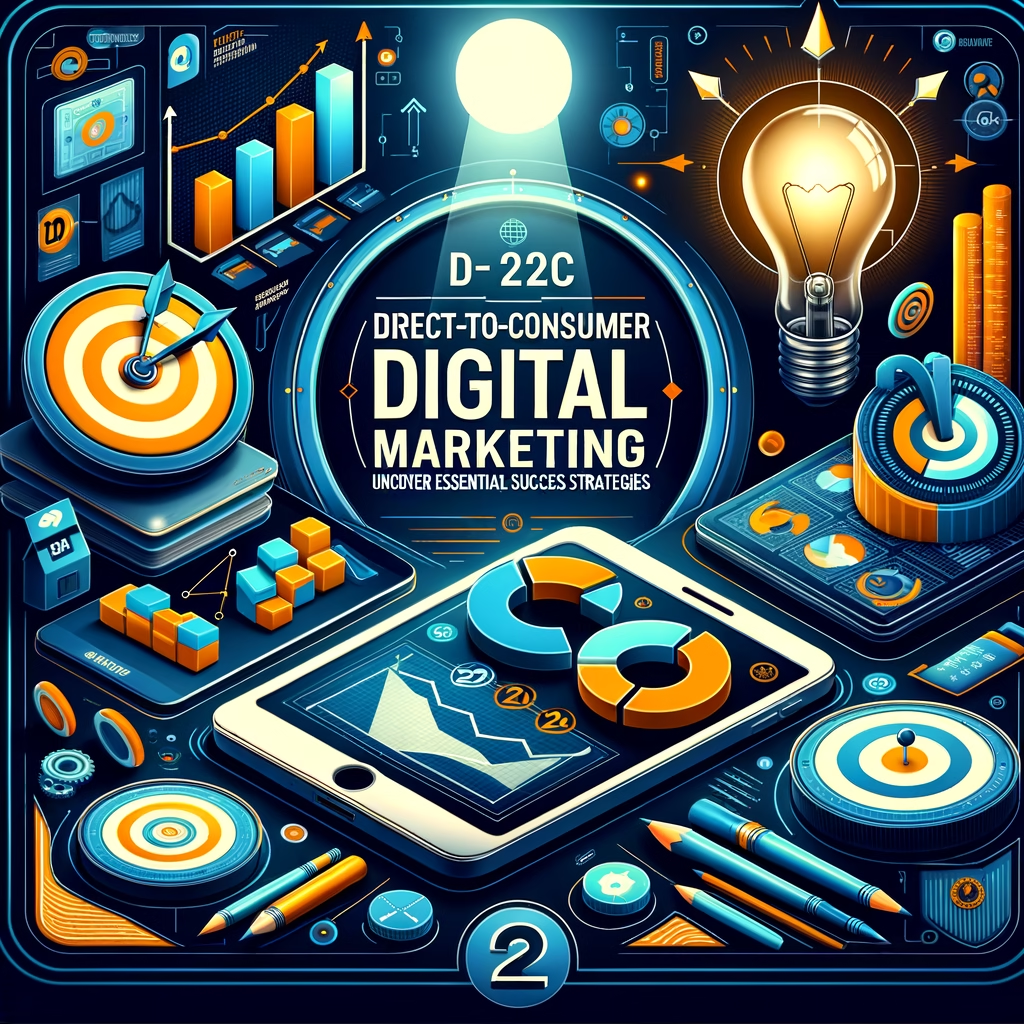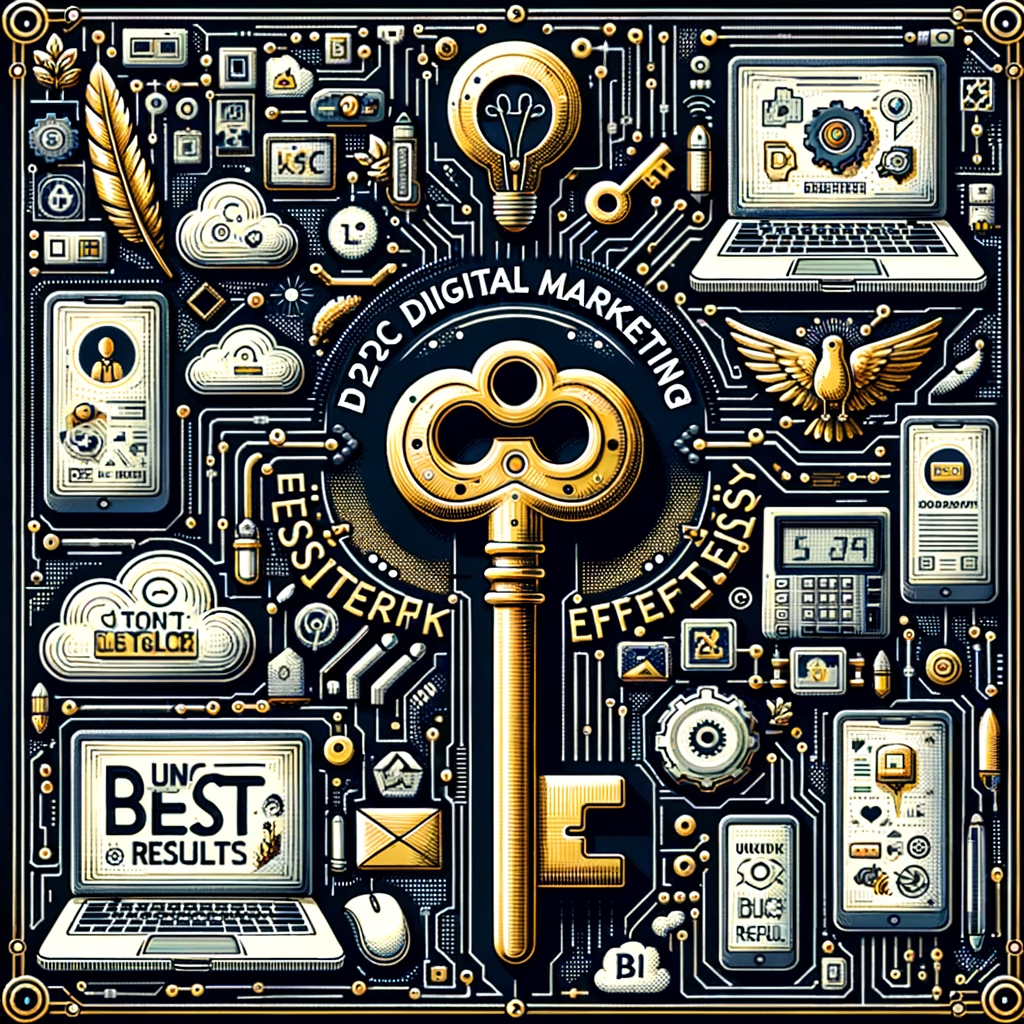- Understanding the Role of AI in D2C Marketing
- AI-Powered Personalization
- Crafting Personalized Experiences with AI
- Predictive Analysis and Customer Insights
- Implementing Predictive AI Tools
- Automating Customer Interactions
- Enhancing Customer Support with Chatbots
- Enhancing Content Strategy with AI
- AI Integration in Content Creation
- Overcoming Challenges with AI Adoption
- Strategies for Overcoming AI Integration Hurdles
- The Future of AI in D2C Marketing
- Preparing for Future AI Trends
Day 1: Leveraging AI in D2C Digital Marketing: Exclusive Success Tactics
Artificial intelligence (AI) is revolutionizing D2C digital marketing by offering businesses innovative tools to understand and engage their customers. By leveraging AI, direct-to-consumer brands can optimize their marketing strategies, deliver personalized experiences, and improve customer satisfaction.
Understanding the Role of AI in D2C Marketing

In the rapidly evolving market landscape, AI’s role in digital marketing has become indispensable. AI tools analyze massive datasets to glean insights into consumer behavior, enabling brands to tailor their marketing efforts more effectively. By automating tasks, AI also allows for real-time adjustments to campaigns, which can significantly enhance their effectiveness.
AI-Powered Personalization
One of the key benefits AI offers in D2C digital marketing is its capacity for personalization. Consumers today expect personalized experiences that resonate with their preferences and behavior. AI tools can analyze browsing patterns, purchase history, and interaction data to create tailored marketing messages. This level of personalization drives higher engagement and conversion rates.
Crafting Personalized Experiences with AI
A robust AI system can segment audiences more precisely than traditional methods. For example, by using machine learning algorithms, brands can send targeted promotions to high-value customers or create individualized landing pages for different user segments. This personal touch is critical in building customer loyalty and driving repeat purchases.
Predictive Analysis and Customer Insights
AI’s predictive capabilities are invaluable in understanding future consumer behavior. By analyzing historical data, AI can anticipate trends and tailor marketing strategies accordingly. This predictive analysis helps brands maintain a competitive edge by proactively addressing consumer needs and identifying potential challenges before they arise.
Implementing Predictive AI Tools
Predictive AI tools like chatbots and recommendation engines can significantly enhance the customer experience. For example, AI-driven product recommendations can increase sales by presenting customers with items they’re likely to buy based on their previous interactions. These recommendations are not just beneficial for customers; they also help businesses optimize inventory and sales forecasting.
Automating Customer Interactions
AI chatbots have transformed the way brands interact with their customers. These tools provide instant responses, guiding users through the buying process and resolving inquiries efficiently. By automating routine customer interactions, chatbots free up human resources to focus on more complex tasks, enhancing overall productivity.
Enhancing Customer Support with Chatbots
Advanced AI chatbots can handle a wide range of customer queries, from tracking orders to providing product information. By deploying chatbots across multiple platforms, brands ensure consistent communication, increasing customer satisfaction and loyalty. Moreover, analytics from chatbot interactions can provide insights into common customer issues, allowing brands to refine their products and services.
Enhancing Content Strategy with AI
In D2C digital marketing, content is king. AI tools can optimize content strategies by analyzing what type of content resonates with different audience segments. This data-driven approach ensures content is not only engaging but also serves to convert.
AI Integration in Content Creation
AI-powered tools can assist in generating content ideas and even in content creation itself. For instance, AI can suggest headlines, improve SEO, or create engaging social media posts based on trending topics. This allows brands to maintain a robust and dynamic content strategy that keeps them relevant and engaging in the eyes of their consumers.
Overcoming Challenges with AI Adoption
Despite its benefits, adopting AI is not without challenges. Integrating AI tools into existing systems requires careful planning and investment. Brands may face resistance to change or concerns about data privacy among consumers. Hence, addressing these challenges is crucial for successful AI adoption.
Strategies for Overcoming AI Integration Hurdles
To implement AI successfully, brands should start small and scale up based on feedback and results. Ensuring transparency with consumers about how their data is used can alleviate privacy concerns. Equipping teams with the necessary skills and knowledge through continuous training will also ease the transition.
The Future of AI in D2C Marketing
The future promises even more advanced AI solutions, further transforming the D2C landscape. With the integration of AI and emerging technologies like AR and VR, personalized and immersive customer experiences will become the norm. Brands that embrace AI innovations will be better positioned to meet evolving consumer expectations and achieve sustained success.
Preparing for Future AI Trends
To stay ahead, brands should keep abreast of AI technological developments and incorporate them into their strategies proactively. Constantly innovating and refining AI applications will ensure brands remain adaptable and competitive in the dynamic D2C sector.
In conclusion, leveraging AI in D2C digital marketing provides brands with unprecedented opportunities for personalization, engagement, and efficiency. By harnessing the power of AI, brands can refine their marketing tactics, enhance customer experiences, and ultimately drive growth in an increasingly digital-first world. As AI technology continues to advance, its integration into D2C marketing strategies will only become more critical for achieving long-term business success.



